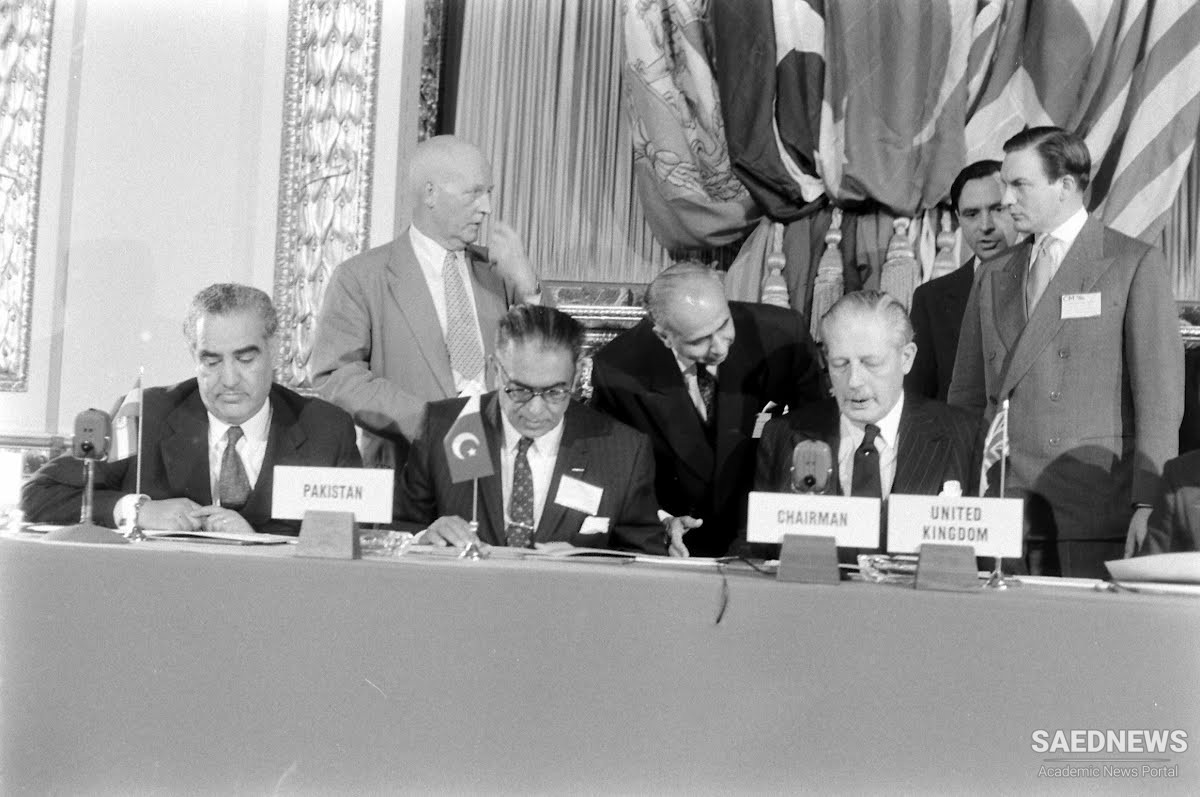Nasser vehemently opposed this, claiming that the Arabs had no grievance against the Soviets; rather, it was against Israel that they should ally. In the face of Cairo’s intransigence, the British and Americans abandoned their idea of an all-Arab anticommunist alliance and substituted the Northern Tier concept. Under it, the states of Turkey, Iran, Pakistan, and Iraq formed a barrier along the Soviet Union’s southern border, checking its advance toward the Gulf.The Hashemites’ offer of Iraq as a base for the Baghdad Pact brought down a storm of criticism on their heads. Nasserist propagandists portrayed them as lackeys of the West, and this fanned the barely repressed hostility of anti-Hashemite elements inside the country. In the midst of this furor, the Hashemites, usually adept at protecting themselves, blundered fatally. A number of officers in Iraq’s army had been plotting against the Hashemites but had not found an opportunity to move against them. In the summer of 1958 the regime permitted a tank battalion, commanded by one of the disaffected officers, to transit Baghdad in the process of relocating to the Jordanian front. Once inside Baghdad, the unit mutinied and carried out a coup that eliminated the king and most of his retinue. The cost to Britain of the overthrow was considerable—at a stroke it lost not only its foremost friend in the Middle East but also its base of power in the Gulf.Five years later the dictator-general who led the coup was himself deposed and assassinated, and after that Iraq was ruled by a succession of military regimes. Each of these successor regimes tended to be a little more acceptable to Western interests. By the late 1960s it appeared that the West would regain its former influence in the country. But in 1968 yet another coup reversed the trend toward moderation. The coup leaders, adherents of the Ba’th (Renaissance) Party, not only were extreme Arab nationalists but also followed Nasser’s lead in cultivating rapprochement with the Soviets. After a clash of interests with the Western powers, the Ba’thists committed Iraq to a fifteen-year friendship treaty with Moscow, the third Arab state (after Yemen and Egypt) to do so.It was the West’s misfortune that the Ba’thists’ takeover in Iraq practically coincided with the announcement by Britain that it was abandoning its military presence east of Suez. Britain declared that it no longer had the economic resources to police the Gulf, which raised the disturbing specter of a power vacuum in this strategic area of the globe.


 Nadir Shah's Foreign Policy and Its Consequences for Afsharid Persia
Nadir Shah's Foreign Policy and Its Consequences for Afsharid Persia














































